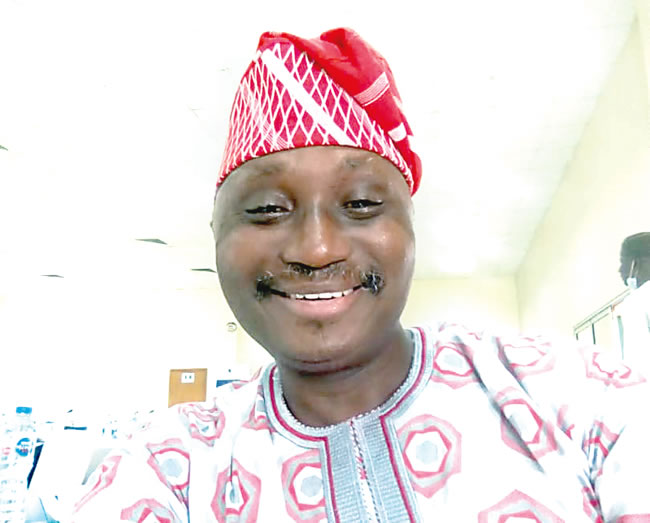Associate Professor and former Head of Department of History, Obafemi Awolowo University, Ile Ife, Osun State, Adetunji Ogunyemi, speaks to DARE ADEKANMBI on the inherent weaknesses of the presidential system of government in Nigeria and the debilities which have made President Muhammadu Buhari a nepotistic leader, among other issues.
Democracy came under a severe test early in the month in the United States last month when a riotous mob loyal to the then outgoing now [former] President Donald Trump. What lessons do you think the political class in Nigeria should draw from the US incident?
There are three main lessons for the political class in Nigeria to draw from the event that happened on January 6 in the United States. The first is that acceptance of defeat or if you like, accepting the verdict at polls is part of democratic norms. It is not a sign of weakness. But accepting the decision of the electorate at the polls is a fundamental democratic norm. It may not be written down anywhere, but it is integral to democratic practice itself. A bad or sore loser is not a person that is democratic at all.
The second lesson is character of office. Did you notice it was not the people who helped the US out of the crisis? It was character of leadership. Trump’s deputy, Mike Pence, did not act as the vice-president to Donald Trump. He acted as the vice-president of the United States. He insisted on following constitutional rules and he only presided as a gatekeeper. He could have acted otherwise. He could have insisted that he is hindered as a result of the public opinion and the fact that there were objections in certain quarters and wait until the Judiciary will take a decision. A Nigerian politician would have seen a lacuna to hang on to. But because of the development of personal character, he took a personal decision to do what was right. This is also another democratic norm our politicians need to learn in this part of the world. Nigerian politicians are so deficient in character that for the love of filthy lucre and offices, they can even directly work against their own political parties. To be elected as Speaker or leader of the National Assembly, you will see people work against their own parties because they lack character.
And the third lesson is that of timeous judicial intervention, judicious and very conscientious. It is not only laws that permit for democratic norms to take root. It is also what we call judicial activism and timeous intervention in democratic processes. Did you notice that Trump and his co-travellers approached the court 50 times in diverse places, from the lower court to the highest court? And each time, in less than three days, the court pronounced its judgment.
Under the Electoral Act of Nigeria, did you know that a meddlesome interloper, somebody who has no business in any election, can halt an electoral process for an upward of six months? The law has just been amended now to say he can do it for 90 days. Such a ludicrous provision in our law should be expunged because it does not permit for timeous and judicious intervention in the democratic process, such that time is not consumed in the court while the nation burns. The Nigerian democracy and its actors have to imbibe these key lessons.
Nigeria fashions its presidentialism after the US, though we know there are no areas of marked differences in operation. We have operated this model for about 25 years and tongues have been wagging that it is not the best model for us. What do you think?
From October 1, 1979 to December 31, 1983 when we first had it and then from 1999 till date, we have experimented with presidential democracy for about 26 years. Don’t forget that the US model is about 250 years, which means they have had time to also cut their teeth according to the circumstances of their environment. But regardless of the historionics of the presidential system of government and the comparative advantage between it and the parliamentary system, I posit that four different debilities, if you like, demerits of the model, do not recommend presidentialism to the Nigerian environment.
The first is that it is utterly expensive. I don’t need to stress that. The second one is that it makes the president almost like a dictator. He is in charge of virtually all the powers, particularly appointive power, by which if the president becomes nepotistic as we have today in Nigeria, the country can either go into implosion or atrophy as a result of that nepotistic disposition. I give you an example. Section 153 of the 1999 Constitution created 14 federal executive bodies. These bodies are the ones in charge of the country. There is no aspect of the Nigeria life that can escape these bodies. Without deference to anybody or even to the state from where they come, it is the president that appoints members of these bodies. For the sake of Nigerians who don’t really know this presidential power and the danger it can actually bring upon the country, these bodies are: the Code of Conduct Bureau, which is a major instrument with the president having the capacity to either use it to witch-hunt whoever he does like and in favour of those he likes. Then we have the Council of State, the Federal Character Commission, the Federal Civil Service Commission, the Federal Judicial Service Commission, the Independent National Electoral Commission (someone who is interested in voting will be the one to appoint the person who will supervise the exercise), the National Defence Council, the National Economic Council, the National Judicial Council (NJC) which appears to be the funniest. NJC has 22 members and the president appoints one person who in turn appoints 19 out of 22 members, the National Population Commission, the National Security Council, the Nigeria Police Council, the Police Service Commission, the Revenue Mobilisation Allocations and Fiscal Commission. One single human being appoints people into these bodies. I have calculated it. When you put all the appointees of the president in the country alone together, they are 6,111. Only the president alone appoints this much without anybody filtering. What happens when such awesome power falls into the hand of a nepotistic president as we have now? The country is going to go into an implosion or there will be such division and hate that the country will almost atrophy.
The third thing about demerit of Nigeria’s presidential system is that it tends to emasculate the governors. Did you see how Trump wanted the National Guard used or prevented them from being used? The use of the Armed Forces and the suppressive apparatus of the state is also part of the reasons why the presidential system of government should not be used in Nigeria. Finally, the president, though has the whole country as his constituency, to be able to contest for that position alone, he must be a multibillionaire or a trustee of multibillionaire. In other words, there is the tendency that he may not be able to mobilise enough financial resources to go round the country. Nigeria is a big country; twice the size of Great Britain. In such instance, the person wanting to contest as president will end up in making a deal with the power holders or those we call godfathers who will govern and use the president as a pawn in their hand.
I understand why they chose presidentialism in 1979. It was because the parliamentary system had the inherent disadvantage of making the country ungovernable if any part of the parliamentary coalition pulls out, then the government at the centre will fall. That weakness was noticed in Netanyahu’s Israel where just a single person pulled out of a coalition with his government and the government fell such that within a space of two years, Israel did four elections. So, it is the coalition orientation and the instability properties of the parliamentary system that made the government then to think that the presidential system would be better.
But J.S Cookey, one of Nigeria’s highly celebrated historians, in 1982, highlighted the disadvantages of the presidential system and warned that except the country practices rotational presidency, there was no was the idea of presidentialism won’t lead to nepotism in an ethnically charged country like Nigeria. When a single person seizes the jugular of the power centre in the country and he is a nepotistic person, God will help such a country.
There are demerits in both parliamentary and presidentialism. So, what would you recommend? A home-grown system?
I will recommend a return to the parliamentary system of government in such a way that the head of government will be the person whose party controls the majority in the National Assembly. In such instance, Nigeria will have to collapse the states. The states are unwieldy, giving the Federal Government to control the capacity of the local people and their autonomy to be able to develop is being emasculated at the centre. If the states are collapsed into a maximum of seven, using the current zonal system as the basis of those states and Abuja kept as a mayoralty which will not elect anybody into the parliament just like they have in Washington D.C, if we do this, we will have states that are strong enough to be able to build their local autonomy from their own respective development.
So, a return to a restructured Nigeria by amending the parts I and II of the Second Schedule of the 1999 Constitution as altered to reduce the powers of the Federal Government from 68 to 30 and increase the corresponding powers of the states from the current 30 to 68. That is the short cut for now. Otherwise, I would have said we should return to the 1963 Constitution.
The US vice-president doubles as the ceremonial head of the Senate, But in Nigeria, roles are assigned to the vice-president and deputy governors at the pleasures of their bosses. Do you think some of the problems we have seen regarding the presidential system would have been mitigated had we done things like this?
It will never work here in Nigeria. Have you noticed the quality of character in Pence? He was able to tell Trump pointblank that he will follow the rules. How many [Philip] Shaibu [Edo State deputy governor] do you think we can find in Nigeria? We don’t have people with the kind of character that can do what Pence did here. Immediately you make the vice-president the Senate President, the next thing is for him to be thinking of how to impeach the president. And don’t forget that the US vice-president only presides over the Senate and does not have a vote except if there is equal decision between the Republicans and the Democrats and the number of the independent members is not enough to break the tie. He will come in and break the tie by voting then. The US vice-president, though heads the Senate, does not talk. He does not touch anything finance which is handled by the Majority Leader, not even the Senate President. It is also the Majority leader that puts people into committees. It is different from our own rancorous system where everybody wants juicy committee so they can use it as an opportunity of harassing the parastatals so that they can get illegal income.
The absence in character in our political system is a function of our skewed educational system from primary school, where people of honour are no longer the people we look up to. The only people we look up to in Nigeria today are people who either have physical strength to kill, maim and destroy or people who have the financial muscle to determine what happens. We respect money; we respect violence. We don’t respect education; we despise intellection and ridicule the academics.
To return Nigeria to the path it needs to walk to reverse decadence and be on the way to real growth and development, what institutions or areas do you think the leadership needs to, at least, strengthen as an emergency measure?
For a start, we need to strengthen three accountability institutions in the country. Otherwise, my prognosis will be that virtually everything needs to be dumped. There are three institutions in the country that, as a matter of urgency, need to be strengthened and people of good character put in charge. Those who will man these institutions will be people who are distinguished themselves in diverse areas of human endeavour. But a majority of them will be nominated by those in the opposition parties and not by the government in power. Number one of institutions is the office of the Auditor-General of the Federation which is empowered by Sections 584 and 85 of the 1999 Constitution and by the Audit Act of 1956, made during the colonial regime. The Auditor-General of the Federation is that institution that determines whether money that government has voluntarily said it would spend has been well spent and whether Nigerians got value for the money. That office today in Nigeria is a pariah and government deliberately underfunds the office so that it won’t have the capacity to query government. We can put a retired Bishop Kukah there as chairman and Professor Wole Soyinka as its secretary and put the ‘kiigbo kiigba’ people, those who will even testify to their own damnation when such a thing is not legal. We can find such people and they are many of them in the Western part of the country. And then the Auditor-General is made to have prosecutorial power that the power of nolle prosequi of the Attorney General of the Federation will not stop.
The second area is the Independent Corrupt Practices and other Related Offences Commission (ICPC). The third is the Code of Conduct Bureau (CCB) which is provided for in the third schedule part I of the 1999 Constitution. CCB will check and ask how much people earn, where did they earn the money? Someone just bought a Rolls Royce and we knew his tax return was N6,000 per year. Anyone paying N6, 000 tax in the past one year cannot buy a Rolls Royce. It is either the person has been dodging to pay tax or he has stolen the money from treasury. For CCB, we put people like the late Justice Kayode Esho there. These suggestions are the minimum irreducible institutions that will strengthen character in Nigeria.
YOU SHOULD NOT MISS THESE HEADLINES FROM NIGERIAN TRIBUNE
ICYMI: Yoruba, Hausa Teachers Needed In US
The US Embassy and Consulate in Nigeria has announced that the services of Yoruba and Hausa teachers are needed in the United States. According to the Public Affairs Section of the US Mission Nigeria…
Controversy Over Man Who Jumped From 7th Floor Of 1004 During EFCC Raid
The police in Lagos State have begun investigations into the circumstances surrounding the alleged death of a man at 1004 Estate, Victoria Island, who allegedly jumped from the 7th floor of one of the buildings. The man was…
After Two Years, Daddy Freeze Apologises To Bishop Oyedepo
Daddy Freeze whose real name is Ifedayo Olarinde has apologised to Bishop Oyedepo who is the presiding bishop and founder of Living Faith Church aka Winners Chapel…






